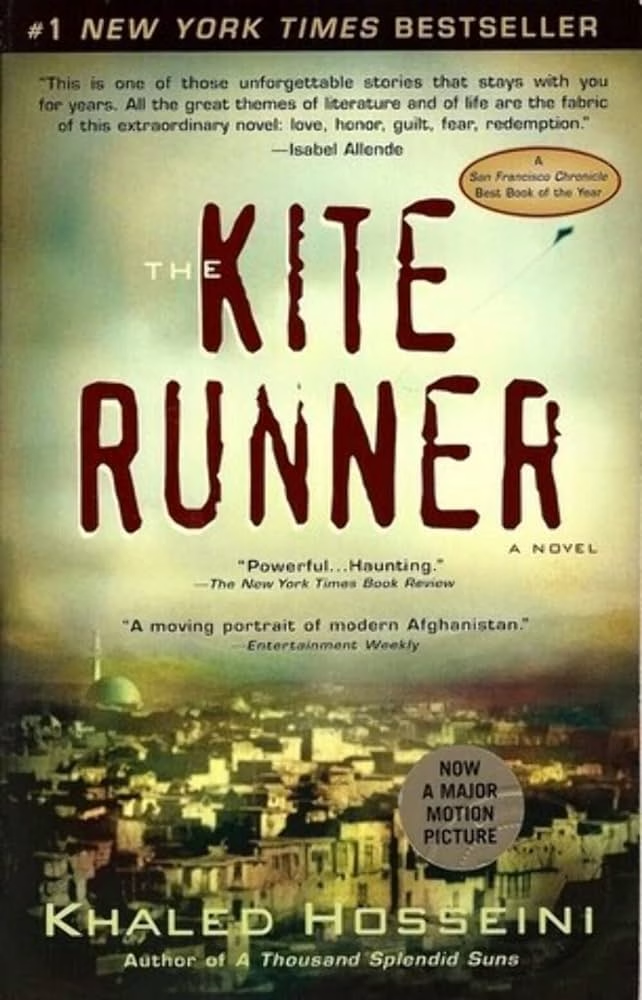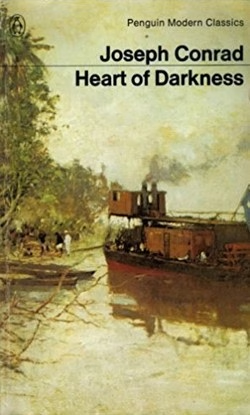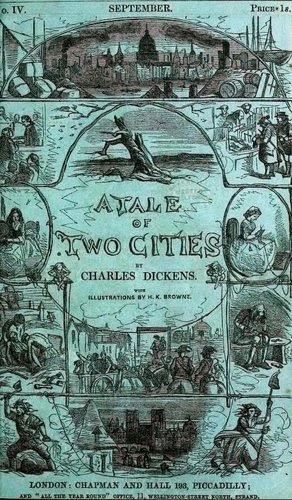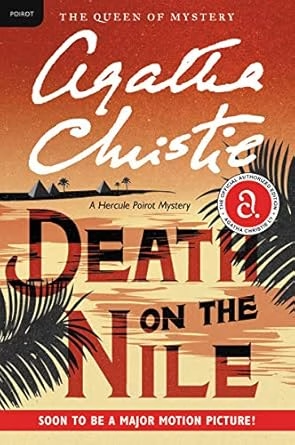Plot Summary
An Unlikely Friendship in a Divided Kabul
The story, narrated by Amir, begins in the final years of Afghanistan’s monarchy. Amir, the son of a wealthy and respected Pashtun merchant known as Baba, grows up in a beautiful home in Kabul. His constant companion is Hassan, the son of their Hazara servant, Ali. Despite the stark social and ethnic differences that define their society—Amir is a privileged Pashtun Sunni, while Hassan is a servant-class Hazara Shi’a—the boys are inseparable. They are nursed by the same woman and their first words are each other’s names.
Amir is a sensitive, quiet boy who loves reading and writing stories, traits that disappoint his powerful, athletic, and commanding father. Baba is a force of nature who builds orphanages and is rumored to have wrestled a bear, and he struggles to connect with a son he perceives as weak. Amir craves his father’s affection and approval above all else, and he is deeply jealous of the easy, natural affection Baba sometimes shows Hassan. Hassan, on the other hand, is illiterate but fiercely loyal, brave, and good-natured. He is marked by a harelip and an unwavering devotion to Amir, often encapsulated by his signature phrase, “For you, a thousand times over.” He acts as Amir’s protector, defending him from neighborhood bullies, most notably the sadistic Assef, a young Pashtun nationalist who despises Hazaras.
The Winter of 1975
The turning point of Amir’s life occurs during the annual winter kite-fighting tournament. For Amir, winning the tournament is not just about the sport; it is his one chance to finally earn Baba’s respect and love. The tournament is a city-wide spectacle where boys fly kites with glass-coated strings (tar) to cut down their opponents’ kites. The last fallen kite is a highly coveted trophy. Amir, with Hassan’s expert help as his kite runner, proves to be a formidable fighter.
In a tense final battle, Amir cuts the last opponent’s blue kite and wins the tournament. He is ecstatic, especially when he sees Baba on the rooftop, cheering and proud at last. Hassan, in his ultimate act of loyalty, volunteers to run and retrieve the fallen blue kite for Amir. As he runs off, he yells back, “For you, a thousand times over!”
Amir goes looking for Hassan and finds him cornered in an alley by Assef and his friends. Assef demands the blue kite, but Hassan refuses to give it up, stating it belongs to Amir. In a horrifying act of revenge and dominance, Assef holds Hassan down and rapes him. Amir, hidden behind a corner, witnesses the entire event. Paralyzed by fear and his own complex shame, he does nothing. He runs away, leaving Hassan to his fate. This act of cowardice becomes the defining moment of his life, a source of inescapable guilt.
The Betrayal and its Aftermath
After the assault, the friendship between the boys is irrevocably broken. Amir is consumed by guilt and cannot bear to be around Hassan, whose silent suffering is a constant reminder of his betrayal. Desperate to erase this reminder, Amir devises a plan to drive Hassan and Ali away. He plants his new birthday watch and some money under Hassan’s mattress and accuses him of theft.
When Baba confronts Hassan, Hassan confesses to the crime he did not commit—one final, devastating act of sacrifice for Amir. To Amir’s shock, Baba forgives Hassan. However, Ali, knowing the truth of the accusation and likely the assault, insists that they must leave. Despite Baba’s tears and desperate pleas, Ali and Hassan depart, severing a forty-year bond between the two families and leaving Amir alone with his triumphant guilt.
Escape to America
A few years later, the political landscape of Afghanistan is shattered by the Soviet invasion. Baba, who despises the communists, decides he cannot live in an occupied country. He and Amir escape Kabul in the middle of the night, embarking on a perilous journey to Pakistan. After a brief, difficult stay in Peshawar, they immigrate to Fremont, California, in the early 1980s.
Life in America is a humbling reversal of their fortunes. Baba, once a man of immense wealth and influence, is reduced to working long hours at a gas station. He struggles with the loss of his homeland, his status, and his pride, but he never loses his dignity, refusing to take welfare. Amir, however, finds America to be a place where he can bury his past. He graduates from high school, enrolls in college to study writing (much to Baba’s initial disappointment), and begins to build a new life. At a local Afghan flea market, he meets and falls for Soraya Taheri, the daughter of a former Afghan general.
Their courtship is conducted under the strict traditions of Afghan culture. Soraya confesses to Amir that she once ran away with a man, a scandal that has damaged her reputation within the community. Amir, burdened by his own far greater secret, envies her courage and accepts her past. Just as their relationship solidifies, Baba is diagnosed with terminal lung cancer. In his final act as a father, he grants Amir’s greatest wish by formally asking for Soraya’s hand in marriage. They marry, and Baba, content to have seen his son settled, passes away peacefully shortly after. Amir and Soraya begin their life together, but their happiness is clouded by their inability to conceive a child, an emptiness that haunts their marriage.
The Call to Redemption
In June 2001, Amir, now a successful novelist, receives a phone call from Baba’s old friend and business partner, Rahim Khan, who is dying in Pakistan. Rahim Khan utters a phrase that pulls Amir back into the past he has tried so desperately to forget: “There is a way to be good again.”
Amir travels to Peshawar and finds a frail Rahim Khan, who proceeds to unravel the secrets of his past. He reveals that after Amir and Baba left, he lived in their old house with Hassan. Hassan had married a woman named Farzana, and they had a son named Sohrab. Tragically, the Taliban executed Hassan and his wife in the street when they refused to give up the house. Their son, Sohrab, is now an orphan in Kabul.
Then comes the most staggering revelation: Ali was sterile. Hassan was not his son, but Baba’s. Hassan was Amir’s half-brother. This truth re-frames Amir’s entire life, casting Baba’s conflicted behavior and Hassan’s unwavering loyalty in a new, painful light. Rahim Khan’s mission for Amir becomes clear: he wants Amir to return to Taliban-controlled Kabul to rescue Sohrab and atone not only for his own sins, but for his father’s as well.
A Return to a Ruined Homeland and The Confrontation
Haunted by the truth, Amir agrees. He hires a driver, Farid, to take him back into Afghanistan. He is horrified by the devastation of his homeland. Kabul is a landscape of rubble, beggars, and fear, ruled by the brutal Taliban regime. Following Rahim Khan’s lead, Amir finds the orphanage where Sohrab was last seen, only to learn from the director that a Taliban official frequently comes to the orphanage, “buys” children, and has recently taken Sohrab.
The director tells Amir he can find the official at the Ghazi Stadium during a public execution. There, amid the horror of a public stoning, Amir sees the official: a man in white, wearing dark sunglasses. He arranges a meeting at a private residence. The official turns out to be his childhood nemesis, Assef.
Assef, now a powerful and sadistic Taliban leader, has taken Sohrab as a “dancing boy,” forcing him to wear makeup and bells on his ankles. Assef recognizes Amir and reveals he has never forgotten their childhood encounter. He agrees to give Sohrab to Amir, but on one condition: they must finish their “unfinished business.” Assef brutally beats Amir with his stainless-steel brass knuckles. As the beating continues, Amir feels a strange sense of peace, as if this physical punishment is the atonement he has craved for twenty-six years. The fight ends when Sohrab, in an echo of his father’s bravery, uses his slingshot to shoot a brass ball into Assef’s left eye, allowing them to escape.
An Uncertain Redemption
Amir, severely injured, escapes Kabul with Sohrab and Farid’s help. They make it back to Peshawar, where Amir spends weeks recovering. During this time, he learns that Rahim Khan has disappeared, leaving behind a letter that encourages Amir to forgive his father and himself. Amir’s attempts to connect with the deeply traumatized Sohrab are met with silence.
Amir promises Sohrab he will never send him to an orphanage again and that he will take him to America. However, the adoption process proves to be a bureaucratic nightmare. An immigration lawyer advises that the best option would be to temporarily place Sohrab in an orphanage in Pakistan to expedite the paperwork. When Amir broaches this idea, the terrified Sohrab attempts suicide in his hotel bathtub.
Sohrab survives but retreats into a state of complete, catatonic silence, a living ghost. Amir and Soraya eventually succeed in bringing him to America, but he remains withdrawn and unresponsive for months. The novel ends the following spring, at a park in Fremont during an Afghan New Year celebration. Amir buys a kite and, remembering Hassan’s tricks, cuts another kite in a friendly battle. He turns to Sohrab and asks if he wants him to run the fallen kite. In response, Sohrab gives the faintest of smiles and nods. As Amir runs after the kite for his nephew, he echoes Hassan’s timeless words: “For you, a thousand times over.” The act doesn’t erase the past, but it represents the first, fragile flake of melting snow—a hint of healing and the beginning of a true, earned redemption.
Characters
Amir
The protagonist and narrator, Amir is a complex and deeply flawed character defined by his lifelong struggle for his father’s approval and the immense guilt from his childhood betrayal of Hassan. As a boy, he is plagued by jealousy and cowardice, which lead him to stand by while his best friend is assaulted and then to orchestrate his exile. The rest of his life is a journey to atone for this sin. He uses America as a shield to bury his past, but ultimately, he cannot escape it. His return to Afghanistan forces him to confront his demons, display the courage he always lacked, and accept responsibility for his actions, finally transforming from a passive boy into a proactive, self-sacrificing man.
Hassan
Amir’s childhood companion, servant, and half-brother. Hassan is the moral heart of the novel, an almost mythically pure figure of loyalty, love, and sacrifice. Despite being illiterate and belonging to the persecuted Hazara minority, he possesses an innate wisdom and unwavering integrity. His devotion to Amir is absolute, and he endures humiliation and violence in his service. Hassan functions as a Christ-like figure whose suffering and sacrifice ultimately pave the way for Amir’s redemption. His legacy lives on through his son, Sohrab, offering Amir a final chance to honor his memory.
Baba
Amir’s father, Baba is a larger-than-life, charismatic, and deeply principled man who is a community leader in Kabul. He is tormented by the contradiction between his public persona of honor and his secret sin: fathering an illegitimate child, Hassan, with his servant’s wife. This hidden guilt fuels his charitable works but also creates a deep rift in his relationship with Amir. He is hard on Amir because Amir is a constant, legitimate reminder of his own hypocrisy and failings. In America, stripped of his status, his true strength and love for Amir shine through, culminating in his final act of securing his son’s happiness.
Assef
The novel’s primary antagonist, Assef is a sociopathic bully who embodies the ethnic and religious extremism that will eventually consume Afghanistan. From a young age, he is driven by a sadistic desire for power and a belief in Pashtun supremacy. He is a direct foil to Hassan’s purity and Amir’s moral conflict. His reappearance as a Taliban official is not a coincidence but a symbol of how the personal and political horrors are intertwined. He represents the unrepentant evil that thrives in chaos and serves as the final, violent obstacle in Amir’s path to redemption.
Rahim Khan
Baba’s closest friend and a surrogate uncle to Amir. He is the quiet, wise, and compassionate counterpoint to Baba’s boisterous personality. Rahim Khan is the only adult who understands and encourages Amir’s passion for writing and sees the goodness within him. As the keeper of the family’s darkest secrets, he serves as the story’s moral guide, ultimately calling Amir back to Pakistan to offer him “a way to be good again.”
Soraya Taheri
Amir’s wife, Soraya is an intelligent, kind, and strong-willed woman who becomes Amir’s anchor in America. She has her own past to contend with, having defied Afghan tradition by running away with a man before meeting Amir. Her story provides a parallel to Amir’s theme of past sins and societal judgment, particularly highlighting the double standard faced by Afghan women. Her courage in confessing her past inspires Amir and she becomes a loving and crucial partner in his quest to save and heal Sohrab.
Core Themes
Betrayal, Guilt, and Redemption
This is the central thematic trio of the novel. Amir’s passive betrayal of Hassan in the alley is the original sin that fractures his world and fills him with a lifelong guilt. The story is structured as a quest for redemption, a journey to atone for that single moment of cowardice. The narrative argues that true redemption is not about forgetting, but about confronting the past and taking action to make amends. It is an active, painful, and often incomplete process, as shown by Amir’s brutal confrontation with Assef and his difficult, ongoing journey with Sohrab.
The Complexities of Father-Son Relationships
The novel is driven by the powerful and fraught relationships between fathers and sons. Amir’s entire childhood is motivated by a desperate yearning for the approval of his formidable father, Baba. This dynamic is complicated by Baba’s own hidden relationship with his other son, Hassan. Baba’s inability to openly love Hassan leads him to be overly critical of Amir, creating a painful cycle of guilt and disappointment. The story deeply explores how a son’s identity is shaped by his father’s actions, expectations, and, most importantly, his sins.
Social Hierarchy and Ethnic Prejudice
The deep-seated ethnic and religious tensions between the dominant Pashtuns and the minority Hazaras form the social fabric of the novel. Hassan’s identity as a Hazara dictates his station in life as a servant and makes him a target for persecution by characters like Assef. Amir’s own internal conflict is often tied to this social divide; his shame and jealousy are compounded by the fact that Hassan is “just a Hazara.” The novel serves as a powerful critique of the bigotry that has plagued Afghanistan, showing how personal relationships are warped and destroyed by societal prejudice.
The Past is Never Past
The novel opens with the line, “the past claws its way out,” establishing the theme that memory and past actions are inescapable forces. Amir spends two decades trying to bury his memories of the winter of 1975, but his guilt follows him from Kabul to California. The story is structured as a large flashback, emphasizing how a single event can define a lifetime. Amir’s journey shows that one cannot move forward without first reckoning with the past, no matter how painful.
Plot Devices
First-Person Confessional Narrative
The story is told entirely from Amir’s point of view, framed as a confession. This intimate perspective makes his guilt and self-loathing palpable to the reader. However, Amir is also an unreliable narrator; his account is colored by years of shame and rationalization. This narrative choice forces the reader to experience the events through the lens of the person most culpable, creating a powerful and immersive story about the search for self-forgiveness.
Symbolism
Hosseini uses powerful, recurring symbols to underscore the novel’s themes:
* Kites: Kites symbolize both the innocence and joy of childhood friendship and the fierce competition and betrayal that destroys it. The blue kite, the ultimate prize of the tournament, becomes a symbol of Amir’s guilt, representing the victory he achieved at the cost of Hassan’s honor. In the final scene, flying a kite with Sohrab symbolizes a fragile new beginning and a chance for connection.
* The Lamb: The “look of the lamb” that Amir sees in Hassan’s eyes before the rape is a powerful symbol of innocence being led to slaughter. It connects Hassan to the tradition of Eid-e-Qorban, where a sheep is sacrificed, solidifying his role as the selfless, sacrificial figure whose suffering is necessary for Amir’s eventual redemption.
* Scars (Hassan’s harelip and Amir’s split lip): Hassan’s harelip is a physical marker of his social standing and vulnerability. After Amir is beaten by Assef, he is left with a split upper lip, a scar that mirrors Hassan’s. This physical wound marks the climax of his atonement, symbolizing that he has finally taken a blow for Hassan and is now physically and spiritually linked to the brother he betrayed.
Circular Narrative and Foreshadowing
The novel’s structure is cyclical. It begins in 2001 with Amir receiving the call from Rahim Khan, then flashes back to his childhood, and finally returns to the present to complete his journey of redemption. This structure reinforces the idea that the past is inescapable. The final scene, in which Amir runs a kite for Sohrab while repeating Hassan’s words (“For you, a thousand times over”), brings the story full circle, allowing Amir to step into Hassan’s role and begin to break the cycle of sin and suffering.





